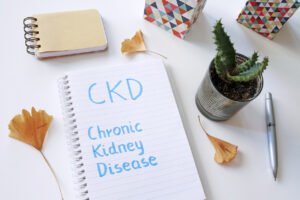6 Food Ingredients to Avoid or Limit during Renal Care

The kidneys are responsible for filtering excess water and waste products from the body in an effort to maintain the body’s salt and mineral balance. However, in the United States, more than 30 million individuals have damaged kidneys, with most undiagnosed in their early stages. Kidney illness may affect anybody, regardless of age or any other demographic, making it a rising concern across the country.
There are two primary types of kidney disease: acute kidney damage and chronic kidney disease (CKD), with the latter being irreversible and more severe. As CKD develops, the patient’s nutritional needs change drastically.
A healthcare professional may advise a patient with impaired kidney function to use medical nutrition treatment to choose meals carefully. The following dietary components are crucial for individuals with renal disease’s nutritional wellbeing.
Fluids
Because damaged kidneys cannot eliminate excess fluid, people with severe CKD may need to limit how much they drink. The liquid in the body builds up, putting pressure on the heart. Fruits and vegetables with high water content (e.g., watermelon, tomato, cucumber, celery) should be taken moderately.
Fat
Too much fat raises the risk of blocked arteries and heart issues. As a result, knowing the sources of fat in one’s diet is critical, as certain fats are healthier than others. This is especially important for patients with CKD, who are at a higher risk of heart attack or stroke. For example, vegetable oils and monounsaturated fats can replace animal fats.
Protein
People with CKD should reduce their protein intake because consuming more than the body requires might place undue strain on the kidneys. Any excess protein may cause them to fail sooner. Protein restriction, however, may result in malnutrition. Therefore, people with CKD can receive the daily protein they need by eating two 3-oz meals of meat or meat substitute.
Sodium
Too much salt causes the body to retain fluid, raising blood pressure and putting stress on the heart and kidneys. The FDA advises that everyone consume no more than 2,300 mg of sodium per day, equal to 1 teaspoon of table salt. Fresh-cooked meat, rice, noodles, and fresh veggies are all low-sodium options for CKD patients.
Potassium
Damaged kidneys lead to potassium buildup in the blood, resulting in serious cardiac issues. However, potassium should not be eliminated from anyone’s diet completely. Foods that are low in potassium, such as apples, grapes, and blueberries, can be consumed in moderate amounts. Fortunately, potassium levels can easily be tracked through blood testing. Higher than normal levels should be corrected immediately.
Phosphates
Phosphorus can build up in the bloodstream if damaged kidneys cannot filter them out immediately. Too much phosphorus in the blood causes itchy skin and calcium loss, leaving bones weak and prone to breakage. To regulate the phosphorus in the blood as CKD develops, a person may need to take a phosphate binder. Pasta, almonds, grains, and legumes are low-phosphorus options healthier for patients with advanced CKD.
Conclusion
People with CKD must follow a proper renal diet since the kidneys cannot filter or eliminate waste adequately when their function is impaired. The electrolyte levels of a patient might be harmed if waste is left in the blood. A renal diet can potentially assist in improving kidney function and delay the onset of total kidney failure. Because every person’s body is different, each patient must engage with a renal dietitian to develop a diet suited to their specific needs.
If you or someone you know has CKD and is in need of 24-hour nursing care in Morristown, the expert Kidney Care Team at Morristown Post Acute can provide comprehensive and compassionate care while improving our residents’ quality of life through highly individualized treatment plans. We care for patients with a wide variety of kidney diagnoses. Contact us today!